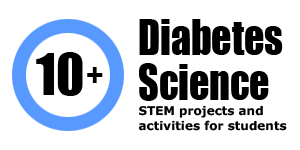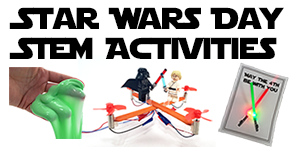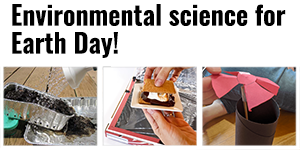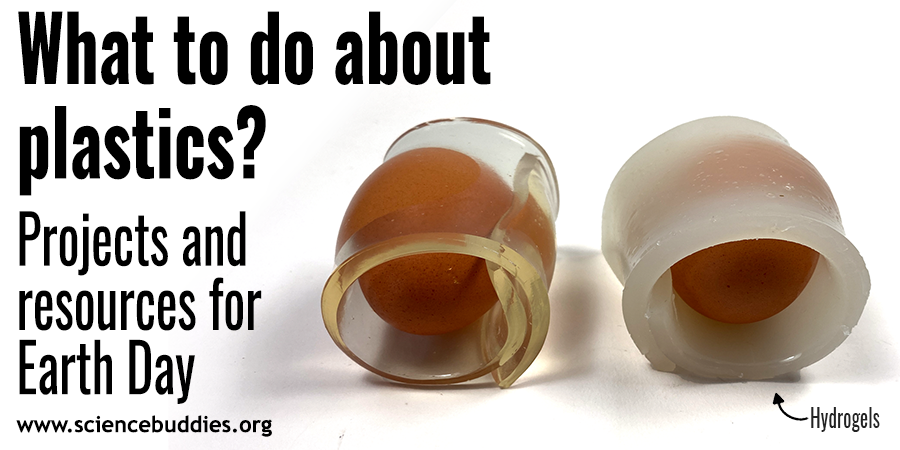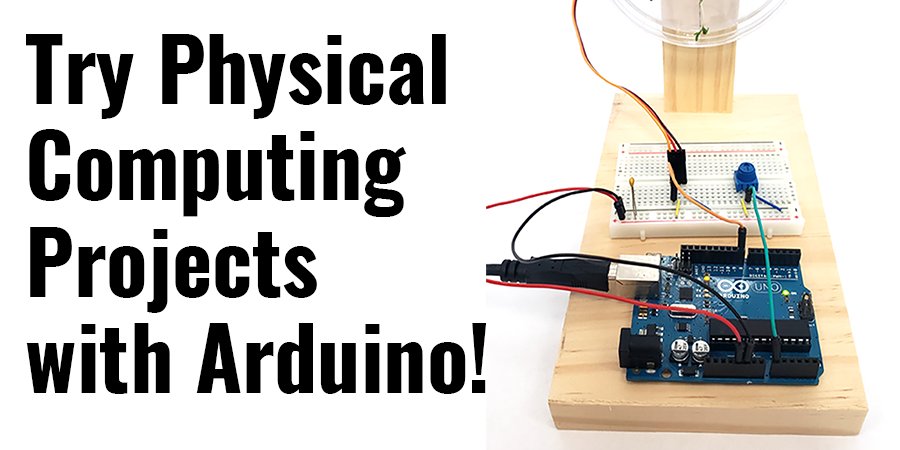Explore Diabetes with Student STEM Projects
November is National Diabetes Awareness Month. Students interested in science related to diabetes can learn more with hands-on science projects and activities.
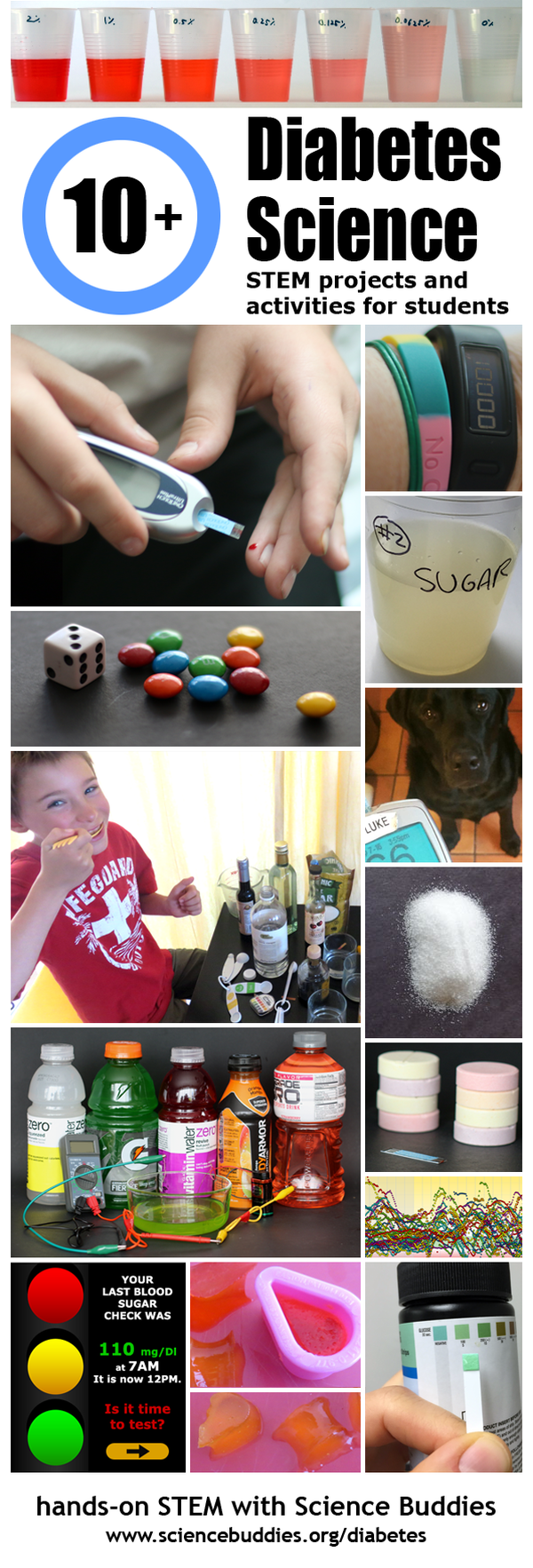
Exploring Science Questions Related to Diabetes
When faced with a science project or science fair project assignment, students who have Type 1 Diabetes, or have a family member of friend with diabetes, often immediately think about exploring a science question related to diabetes. Diabetes mellitus (diabetes) refers to a group of diseases related to the body's ability to produce or use insulin. Science Buddies has a number of projects that are specifically related to diabetes, and there are many other STEM projects in the Science Buddies library of more than 1,100 scientist-authored project ideas that can be adapted by students to focus on something related to diabetes.
Students with Type 1 Diabetes, an autoimmune disease in which the body attacks and destroys the cells in the pancreas that produce insulin, live with constantly changing blood glucose levels, insulin needs, and carbohydrate ratios. People with T1D observe and manipulate a range of variables every day in an effort to keep blood glucose levels within safe ranges. Because T1D requires constant monitoring and attention, a person with T1D may at times feel like he or she is living an ongoing science project! In fact, many of the variables that affect a person with T1D can be turned into an interesting student science project.
Here are just a few of the many questions students might be curious about or might think to explore with a science project:
- How does exercise affect blood glucose? How does it affect blood glucose during exercise? An hour after? Three hours after?
- How might changes in basal rates affect glucose levels during and after exercise? What is the best timing for those kinds of insulin changes?
- What kinds of foods before exercise can make a difference in glucose levels during and after?
- Why does blood glucose drop rapidly for some people during a hot bath?
- How does the timing of insulin for breakfast affect how much of a rise in blood glucose happens after breakfast?
- How does your body's sensitivity to insulin vary at different times of the day? How does this variance impact insulin-to-carb ratio?
- How quickly does insulin given for food start working?
- How long does insulin work in the body?
- What does the peak of insulin look like during its duration, and how can you use this information to time giving insulin and/or eating?
- How do various blood glucose meters compare?
- How does the math behind the calculation of an A1C work?
- How do various sugar substitutes affect blood glucose?
- What kinds of foods are best at rapidly raising blood glucose during hypoglycemia? What kinds of foods are better at stabilizing a low blood sugar over time?
- How do insulin requirements change with different approaches to diet and nutrition?
- How does scar tissue (from injections or pump sites) impact insulin absorption?
- Do sugar-free and regular sports drinks differ in terms of electrolytes?
- What is involved in the development of smarter insulin pumps or an artificial pancreas?
- What kinds of tools and apps can make a difference in how people with diabetes track food, insulin, and blood glucose to help improve living with a chronic disease?
All of these are questions that could be turned into a student science project, and there are many, many more questions around which a student could focus a diabetes-related project.
A Diabetes Science Project
From the programming of medical apps to nutrition science, genetic modeling, and food-based experiments, the following student science and engineering projects may be of interest to students who want to investigate or experiment with diabetes-related science:
- Blood Sugar Balancing Act: How Exercise Tips the Scales
- Computer Programming for Better Health
- Dealing with Diabetes: The Road to Developing an Artificial Pancreas
- Electrolyte Challenge: Orange Juice Vs. Sports Drink
- How Sweet It Is! Measuring Glucose in Your Food
- Lactose, Sucrose, and Glucose: How Many Sugars are in Your Smoothie?
- Picturing Big Data: The Science of Infographics
- Building Personal Medicine Apps to Help Patients
- Sweet and Sour Tasty Kitchen Science
- Sweet as Sugar: Comparing the Sweetness of Sugar & Sugar Substitutes
- What are the Odds? Modeling the Chances of Getting an Autoimmune Disease
- Why Aren't All Medicines Pills?
For more information and ideas related to Diabetes Science, see our special Diabetes Science Project Ideas project area.
Sugar Metabolism Kit
The Sugar Metabolism Kit contains the specialty materials used in a number of projects to explore the processing of sugar in the body.
Related Resources
See also the following diabetes-related posts on the Science Buddies Blog. These posts offer additional suggestions for students interested in modifying a project to focuse more specifically on diabetes:
- Diabetes Science Projects - Fostering Diabetes Awareness
- When a Dog "Nose" Best: Diabetes Alert Dogs and Scent Science
- Computer Programming for Better Health
- Biomedical Engineering: The Search for Solutions, Big and Small, for Type 1 Diabetes
- Exploring 10,000 Steps a Day with Student Science
- Picturing Big Data: The Science of Infographics
- Changing Diabetes: A Pro Cycling Team with a Mission
- Diabetic Alert Dogs and Your Breath
Pin this collection:

Categories:
You Might Also Enjoy These Related Posts:
- Teach Genetics and Heredity with Free STEM Lessons & Activities - Genetics Science Projects
- Star Wars Projects for May the 4th Be With You Science
- 25+ Earth Day Science Experiments and Activities
- Arduino Science Projects and Physical Computing
- Spring Science Projects: 26 Science Experiments for Spring
- 25+ Robotics Projects, Lessons, and Activities
- March Madness Basketball Science Projects: Sports Science Experiments
- 15 Density Science Experiments


